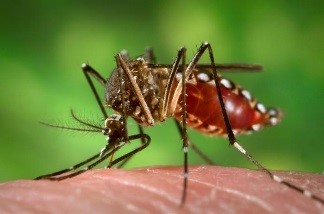
Zika virus is becoming more of a concern in travelers from South America, the Caribbean, and Latin America, especially in pregnant women. Prior to 2015, the only cases of Zika outbreaks were concentrated in areas of Africa, Southeast Asia, and the Pacific Islands. However, the Pan American Health Organization (PAHO) reported the first confirmed Zika virus in Brazil on May 2015. The World Health Organization has declared Zika virus a public health emergency of international concern. Currently, there are no reported localized transmission of Zika in the United States except for the Commonwealth of Puerto Rico. Thus far, the Commonwealth of Virginia has reported one case of imported Zika virus from a traveler.
So why are we concerned about this?
- With the summer Olympics taking place in Brazil this year, it is important to be aware of this virus due to increased exposure to people traveling to areas infected with the Zika virus. Here are a few of the most commonly asked questions about the Zika virus from the Centers for Disease Control and Prevention (CDC).
What is Zika virus disease?
- Zika is caused by the Zika virus, which is transmitted through the bite of Aedes species of mosquito, the most common type of mosquito in Virginia. The virus may be further transmitted through sexual contact and blood transfusions, as well as an infected pregnant mother to her unborn child.
What are symptoms?
- Fever, rash, joint pain, and red eyes. Usually the symptoms are mild and begins 2 to 7 days after the bite of an infected mosquito. Most people don’t even realize that they are infected by this virus.
What population should be more concerned about this virus?
- Pregnant women (in any trimester) are at high risk because of serious birth defects associated with this virus such as microcephaly (a baby’s head is smaller than expected when compared to babies of the same sex and age) and worse pregnancy outcomes.
- Anyone traveling or living in an area with the Zika virus, including South America, the Caribbean, Latin America, Africa, Southeast Asia, and the Pacific Islands.
How do I prevent becoming infected with Zika?
- There is no vaccine available to prevent or treat Zika virus
- Pregnant women (in any trimester):
- Consider postponing travel to an area with Zika virus transmission
- If you must travel to one of these areas, talk to your doctor first and strictly follow steps to prevent mosquito bites
- Avoid travelling to areas with high prevalence of Zika virus
- Wear protective clothing such as long sleeves and long pants
- Stay in places with air conditioning and window/door screens to keep mosquitos away
- Use insect repellants containing at least 20% DEET
What treatment is available?
- There is no specific treatment or vaccine for Zika virus
- See health care provider immediately if you develop the symptoms of Zika virus
- It is important to treat the symptoms that present with Zika virus:
- Drink plenty of fluids (at least 64 ounces per day) to prevent dehydration
- Get plenty of rest
- Talk to your pharmacist or primary care physicians before you take any medications
- Acetaminophen may be taken to reduce fever if suggested by your pharmacist or physician
- Avoid taking non-steroidal anti-inflammatory medications such as ibuprofen or naproxen, or aspirin
What should I do if I think I have Zika?
- See your healthcare provider if you have symptoms of Zika virus
Compiled by:
- Agneta Liubinaite Filisetti and Chezka Mae “Mimi” Baker
- VCU/ MCV Fourth year Pharmacy Students – PharmD Candidates 2016


